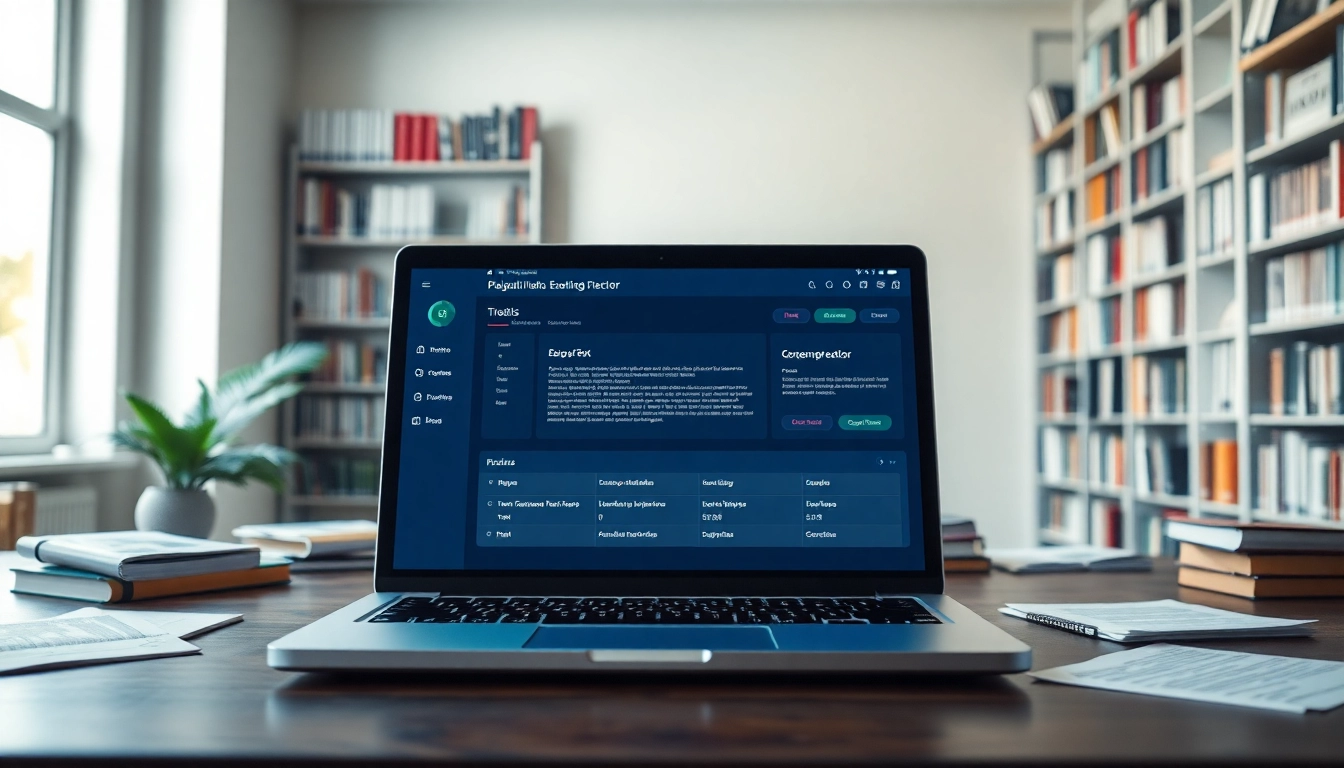Understanding the BTEC Level 5 Diploma in Leadership and Management
Overview of the Qualification
The BTEC Level 5 Diploma in Leadership and Management for Residential Childcare is a vocational qualification tailored for individuals aspiring to take on managerial roles in the residential childcare sector. It equips learners with the essential skills and knowledge needed to lead and manage effectively within this challenging environment, ensuring the welfare and development of children in care settings are paramount. The qualification encompasses a comprehensive curriculum that touches on both theoretical and practical aspects of leadership and management, making it a robust choice for future leaders in the childcare sector.
Importance of the Diploma for Residential Childcare
The significance of obtaining a BTEC Level 5 Diploma lies in its alignment with the specific needs of residential childcare. As regulations become more stringent and the expectations for child welfare and management increase, this diploma serves as a critical gateway for managers to ensure compliance with legal responsibilities and best practices. It not only enhances professional credibility but also significantly improves operational effectiveness in childcare environments while fostering a safe and nurturing atmosphere for children.
Structure and Units of the Program
The BTEC Level 5 Diploma is structured around several key units, combining mandatory and optional topics. Generally, this diploma comprises various units that cover critical areas such as:
- Leadership and management skills development
- Strategic planning in childcare
- Safeguarding and child protection
- Effective communication and interpersonal skills
- Management of resources in childcare settings
By engaging with these units, learners are able to develop a well-rounded skill set that fosters effective management practices while preparing them for real-life challenges in residential childcare settings.
Key Concepts in Leadership and Management
Effective Leadership Styles for Residential Childcare
Leadership is not a one-size-fits-all approach, especially in residential childcare. Effective leaders often adopt various leadership styles based on context and the needs of their teams. Popular leadership styles include:
- Transformational Leadership: This style focuses on inspiring and motivating followers through a shared vision and strong communication, essential in nurturing isolated children.
- Transactional Leadership: Emphasizes clear structures and organizational objectives, often beneficial in settings that require discipline and adherence to regulations.
- Servant Leadership: Prioritizes the needs of team members and encourages a culture of empathy and support, which is judicial in child-focused environments.
Understanding these styles empowers current and future managers to adapt their approach to varied situations, leading to more effective team dynamics and better outcomes for children in care.
Management Strategies for Childcare Environments
Effective management strategies in childcare environments are vital for fostering an atmosphere that promotes learning and development. These strategies may include:
- Incorporating Technology: Utilizing management software to streamline operations and maintain documentation.
- Continuous Professional Development: Encouraging staff training and workshops to enhance skills and knowledge.
- Community Engagement: Involving families and local community resources to create a support network.
These approaches ensure that childcare facilities operate smoothly while maximizing the care and developmental opportunities provided to children.
Assessing Leadership Competencies
Assessing leadership competencies involves evaluating a leader’s effectiveness in skills such as decision-making, emotional intelligence, and crisis management. Tools often used to measure these competencies include 360-degree feedback, self-assessment forms, and performance review meetings. Understanding one’s strengths and weaknesses in these areas helps leaders develop a tailored professional development plan that enhances their ability to manage teams and support children’s needs effectively.
Challenges in Securing BTEC Level 5 Answers
Common Difficulties Students Face
Many students pursuing the BTEC Level 5 Diploma may encounter obstacles such as:
- Understanding complex curriculum content and connecting it to practical applications.
- Finding reliable sources for assignments and coursework.
- Time management due to balancing study with work or personal commitments.
Addressing these challenges proactively is essential for academic success and professional advancement.
Resources and Support Systems
To overcome these challenges, students have access to various resources, including:
- Access to Online Forums: Engaging with peers and mentors in online communities can provide practical insights and support.
- Study Guides and Sample Answers: Utilizing guides available through educational platforms can help clarify expectations and improve assignment quality.
- Institution Support Services: Colleges often provide tutoring and counseling services to help students manage their studies effectively.
These resources can significantly enhance a student’s ability to navigate through their diploma programs successfully.
Real-life Case Studies and Applications
Applying theoretical knowledge through real-life case studies is an effective educational strategy. Case studies allow students to analyze practical scenarios and develop actionable solutions. For instance, examining a childcare facility that faced challenges in safeguarding procedures can help students understand the importance of clear policies and thorough training, thereby emphasizing the practical relevance of their studies in real-world scenarios.
Strategies for Successful Completion
Effective Study Techniques for the Diploma
Successful completion of the BTEC Level 5 Diploma can be significantly improved by adopting effective study techniques, such as:
- Active Learning: Engaging with material through discussions and presentations rather than passive reading.
- Time Management: Creating a structured schedule that allocates time for study, assignments, and revision.
- Setting Goals: Establishing short-term and long-term academic goals to maintain motivation and focus.
These strategies can greatly enhance the learning experience while boosting retention and understanding of the course material.
Collaboration and Study Groups
Collaborating with peers through study groups can provide a wealth of benefits. Group discussions can lead to deeper understanding, while delegating topics among members allows for a comprehensive examination of the curriculum. Additionally, such collaboration fosters a support network, motivating individuals through shared goals and accountability.
Leveraging Online Resources for Assistance
In today’s digital age, the availability of online resources for assistance is invaluable. Websites such as educational forums, video tutorials, and leadership podcasts offer diverse perspectives and insights that can enrich understanding. Specifically, utilizing platforms like BTEC level 5 leadership management residential childcare answers can provide guidance and context that aligns perfectly with the coursework.
Evaluating Performance and Outcomes
How to Measure Success in BTEC Assessments
Measuring success in BTEC assessments can be approached by focusing on both grades and the practical application of learned concepts. Self-reflection is critical in understanding areas of improvement. Additionally, leveraging feedback from assessors and utilizing peer reviews can help gauge the effectiveness of one’s contributions.
Feedback Mechanisms in Residential Childcare
Regular feedback mechanisms in residential childcare settings ensure continuous improvement. Implementing feedback loops where staff regularly assess their effectiveness and the wellbeing of children fosters a culture of accountability and growth. Tools such as surveys, performance appraisals, and feedback forms are commonly used to collect data on various aspects of service delivery and management effectiveness.
Post-Diploma Opportunities and Career Advancement
Completing the BTEC Level 5 Diploma opens numerous doors for career advancement within the childcare sector. Graduates can pursue roles such as:
- Childcare Managers
- Service Coordinators
- Team Leaders in childcare settings
- Child Development Officers
Each of these positions comes with its own set of responsibilities and challenges and often requires further continuous professional development to stay updated with industry best practices and regulatory changes.
Ultimately, the BTEC Level 5 Diploma in Leadership and Management for Residential Childcare provides a robust foundation for individuals to excel in their careers, foster a positive impact in the lives of children, and continuously improve their leadership skills in this rewarding field.















Leave a Reply